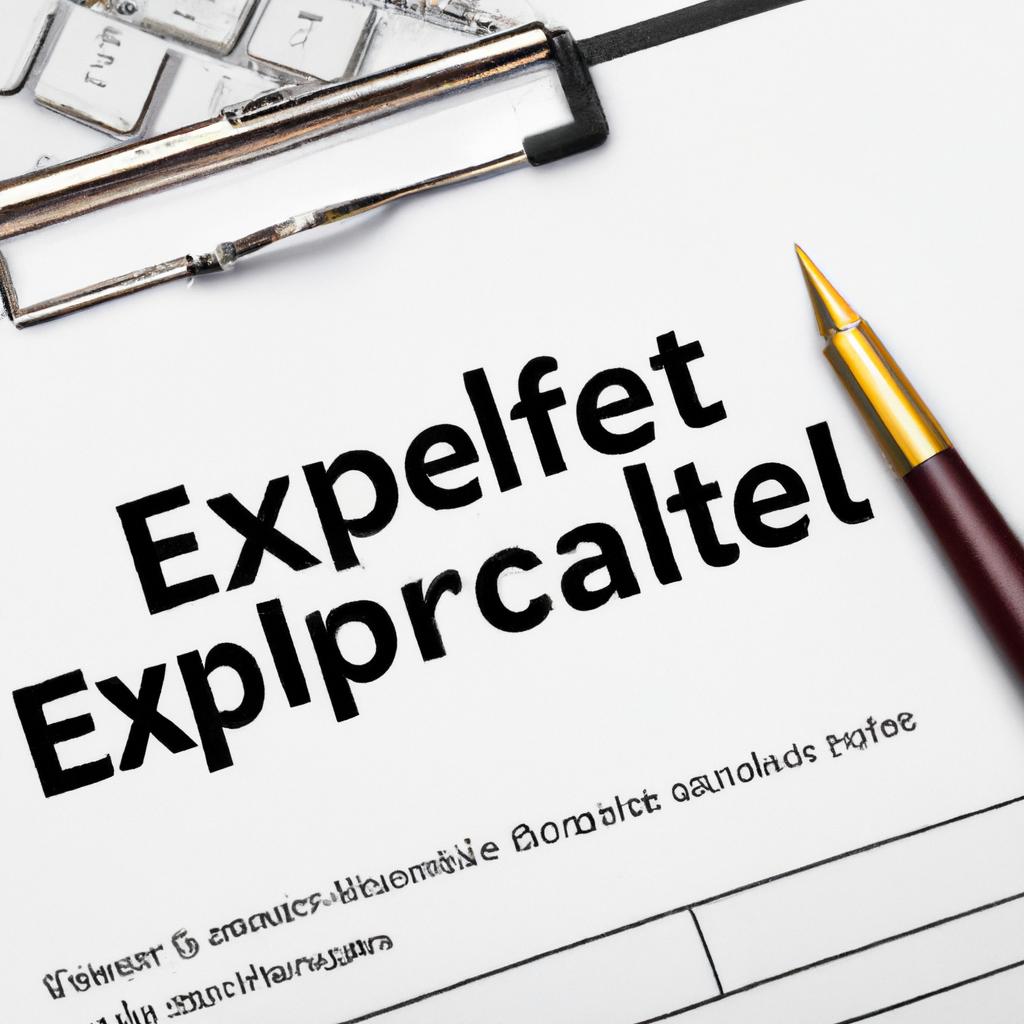Choosing a beneficiary is a critical decision in estate planning that can have significant implications for the distribution of assets upon your passing. As experienced legal professionals at Morgan Legal Group in New York City, we understand the complexities and nuances involved in determining who should be named as a beneficiary in your Will or trust. In this article, we will explore the key factors to consider when selecting a beneficiary, so you can make an informed decision that aligns with your wishes and priorities.
Selecting a Suitable Beneficiary for Your Estate Planning Needs
When deciding on a suitable beneficiary for your estate planning needs, it is important to carefully consider all factors involved. Your beneficiary should be someone you trust and who you believe will responsibly manage the assets and property you leave behind. Consider the following when selecting a beneficiary:
- Relationship: Choose someone who is close to you and whom you trust implicitly.
- Responsibility: Your beneficiary should be financially responsible and able to manage the assets you leave behind.
- Age: Consider the age of your beneficiary, ensuring they are mature enough to handle the responsibilities of being a beneficiary.
It is also advisable to have a secondary or contingent beneficiary in case your primary beneficiary is unable to fulfill their role. Consulting with an experienced estate planning attorney can help you navigate the complexities of selecting the right beneficiary for your estate.

The Importance of Thoughtfully Choosing a Beneficiary for Your Assets
When it comes to planning your estate, one of the most crucial decisions you will have to make is choosing the right beneficiary for your assets. This decision will have a significant impact on how your assets are distributed after your passing, and it is essential to think carefully before making a final choice. Your beneficiary can be a person, an organization, a charity, or even a trust, depending on your specific wishes and circumstances.
It is important to consider the following factors when choosing a beneficiary for your assets:
- Relationship: Consider your relationship with the potential beneficiary and how they will handle the responsibility of managing your assets.
- Financial Stability: Ensure that your chosen beneficiary is financially responsible and capable of managing the assets they will inherit.
- Estate Planning Goals: Keep in mind your overall estate planning goals and how your chosen beneficiary fits into the bigger picture.

Factors to Consider When Determining Your Ideal Beneficiary
When deciding who should be named as your beneficiary, it is crucial to consider a variety of factors to ensure your wishes are carried out accurately. One of the key considerations is the relationship you have with the potential beneficiary. Whether it be a family member, friend, or organization, it is important to assess the strength of your connection and the impact the inheritance may have on the individual or entity. Additionally, considering the financial situation of the beneficiary is vital in order to prevent any potential disputes or complications in the future.
Another important factor to consider when selecting a beneficiary is their age and ability to handle the assets they may inherit. It is crucial to determine if the beneficiary is mature enough to manage the inheritance responsibly. Moreover, considering any potential tax implications for the beneficiary is essential to ensure that they receive the maximum benefit from the assets left to them. By carefully evaluating these factors, you can make an informed decision when determining your ideal beneficiary to safeguard your assets and legacy effectively.
| Factor | Consideration |
|---|---|
| Relationship | Assess the strength of connection |
| Financial situation | Consider the beneficiary’s financial status |
| Age and maturity | Determine if beneficiary is mature enough |
| Tax implications | Consider potential tax implications |

Expert Recommendations on Designating the Right Beneficiary for Your Will or Trust
When designating the right beneficiary for your will or trust, it is crucial to consider several factors to ensure that your wishes are carried out effectively. One important consideration is the relationship you have with the potential beneficiary. You should evaluate whether the individual is trustworthy, responsible, and financially competent to manage the assets they will receive. It is also essential to assess the potential beneficiary’s age, health, and financial situation to determine if they are capable of handling the inheritance.
Another key factor to consider when selecting a beneficiary is the potential impact of taxes and other legal implications. You should consult with an experienced estate planning attorney to understand the tax consequences of your decisions and ensure that your assets are distributed efficiently. Additionally, it is advisable to review and update your beneficiary designations regularly to reflect any changes in your personal circumstances or relationships. By carefully considering these factors, you can designate the right beneficiary for your will or trust and protect your legacy for future generations.
Q&A
Q: Who should I make my beneficiary?
A: Choosing a beneficiary is an important decision that requires careful consideration.
Q: Can anyone be a beneficiary?
A: In general, anyone can be named as a beneficiary on your accounts or insurance policies.
Q: Should I choose a family member or a friend as my beneficiary?
A: The decision of who to choose as your beneficiary ultimately depends on your personal circumstances and relationships.
Q: What happens if I don’t have a designated beneficiary?
A: If you pass away without a designated beneficiary, the assets in your accounts or insurance policies will typically go through probate and be distributed according to the laws of your state.
Q: Can I change my beneficiary at any time?
A: Yes, you can typically change your beneficiary at any time, depending on the specific rules of your accounts or insurance policies.
Q: How many beneficiaries can I have?
A: The number of beneficiaries you can have may vary depending on the specific accounts or insurance policies you are considering.
Q: What factors should I consider when choosing a beneficiary?
A: When choosing a beneficiary, it is important to consider factors such as your relationship with the individual, their financial needs, and any potential tax implications.
Q: Can I name a charity as my beneficiary?
A: Yes, you can name a charity as your beneficiary if you wish to leave a portion of your assets to a cause you care about.
Q: Should I consult with a financial advisor before choosing a beneficiary?
A: It may be beneficial to consult with a financial advisor before finalizing your beneficiary decisions, especially if you have complex financial circumstances.
Future Outlook
Choosing a beneficiary is an important decision that requires careful consideration. By understanding your options and evaluating your relationship with your potential beneficiaries, you can make an informed choice that aligns with your wishes and values. Remember, it’s ultimately your decision, so take the time to reflect on what is most important to you and choose wisely. In the end, selecting the right beneficiary will bring peace of mind and ensure that your assets are distributed according to your wishes.
 As we move through life, we accumulate assets and possessions that we hold dear. These material possessions represent our hard work and accomplishments, and we want to ensure that they are protected and passed on to our loved ones after we are no longer around. That’s where the importance of selecting a beneficiary comes into play. A beneficiary is someone who will receive your assets and possessions after your passing. But, who should you make your beneficiary? In this article, we will explore this question and provide you with valuable information to help you make this crucial decision.
As we move through life, we accumulate assets and possessions that we hold dear. These material possessions represent our hard work and accomplishments, and we want to ensure that they are protected and passed on to our loved ones after we are no longer around. That’s where the importance of selecting a beneficiary comes into play. A beneficiary is someone who will receive your assets and possessions after your passing. But, who should you make your beneficiary? In this article, we will explore this question and provide you with valuable information to help you make this crucial decision.
First and foremost, it is important to understand the different types of beneficiaries and how they may impact the distribution of your assets. There are two types of beneficiaries – primary and contingent. A primary beneficiary is someone who will receive your assets if they are still alive at the time of your passing. On the other hand, a contingent beneficiary is someone who will receive your assets only if the primary beneficiary predeceases you. It is crucial to have both primary and contingent beneficiaries listed to ensure that your assets are distributed as per your wishes.
Now that we have a basic understanding of beneficiaries, let’s delve into the question of who you should make your beneficiary. The answer to this question will depend on your individual circumstances and priorities. However, we have outlined some key factors to consider to help you make this decision.
Your Family Dynamics
For many people, their family is their top priority. They want to ensure that their loved ones are taken care of even after they are no longer around. If this is the case, then your family members would likely make excellent primary beneficiaries. You can choose to name your spouse, children, or even grandchildren as your primary beneficiaries. In cases where you have minor children, you can set up a trust to ensure that their inheritance is managed responsibly until they reach the age of majority.
Financial and Health Situation of Your Beneficiaries
When selecting beneficiaries, it is crucial to consider their financial and health situations. If your beneficiaries are financially independent and in good health, then you may not need to provide them with a substantial inheritance. However, if your beneficiaries have financial struggles or ongoing health issues, then you may want to designate them as primary beneficiaries. This will ensure that they are taken care of and have the resources they need after your passing.
Business Partners or Employees
If you co-own a business with a partner, or if you have employees that have been with you for a long time, you may want to consider them as beneficiaries. They have likely put in a great deal of effort and hard work to contribute to the success of your business, and you may want to show your appreciation by naming them as beneficiaries.
Charitable Organizations or Causes
Another option for your beneficiaries could be a charitable organization or cause that holds significant meaning for you. If you are passionate about a particular cause, then you can name the organization as a beneficiary in your will. This will allow you to make a lasting impact and continue supporting a cause that is important to you even after you are gone.
Avoid Naming Your Estate as the Beneficiary
It is always advisable to avoid naming your estate as the beneficiary of your assets. When you name your estate as the beneficiary, your assets will go through the probate process, which can be costly and time-consuming for your loved ones. Additionally, if you have any outstanding debt or taxes, they will have to be paid from your assets before they can be distributed to your beneficiaries. This can significantly reduce the amount of inheritance your loved ones will receive.
Regularly Review and Update Your Beneficiaries
Life is ever-changing, and it is essential to review and update your beneficiaries regularly. This will ensure that your assets are going to the right people and organizations. As you reach different milestones in life, such as getting married, having children, or starting a business, make sure to review your beneficiaries and make any necessary changes.
In conclusion, selecting a beneficiary is a crucial decision that requires careful consideration. It is essential to consider your family dynamics, the financial and health situation of your beneficiaries, and your personal priorities when making this decision. Regularly reviewing and updating your beneficiaries can also help ensure that your wishes are honored. Take the time to think about and discuss this decision with your loved ones to ensure that your assets are distributed as per your wishes.
TABLE:
| Potential Beneficiary | Why They Could Be a Good Option |
|———————–|——————————–|
| Spouse | They are a significant part of your life and would benefit from your assets. |
| Children | As your heirs, they have legal rights to your inheritance. |
| Grandchildren | If your children have passed away, you may want to leave your assets to your grandkids. |
| Siblings | If you are unmarried and have no children, your siblings can be primary or contingent beneficiaries. |
| Parents | You may want to leave your assets to your parents if they are financially dependent on you. |
| Close Friends | If you do not have close family, your friends may be like family to you, and you may want to include them as beneficiaries. |
| Business Partners | If you own a business with a partner, you may want to include them as a beneficiary. |
| Charitable | Organizations or Causes | If you are passionate about a particular cause or organization, you may want to leave a portion of your assets to them. |

